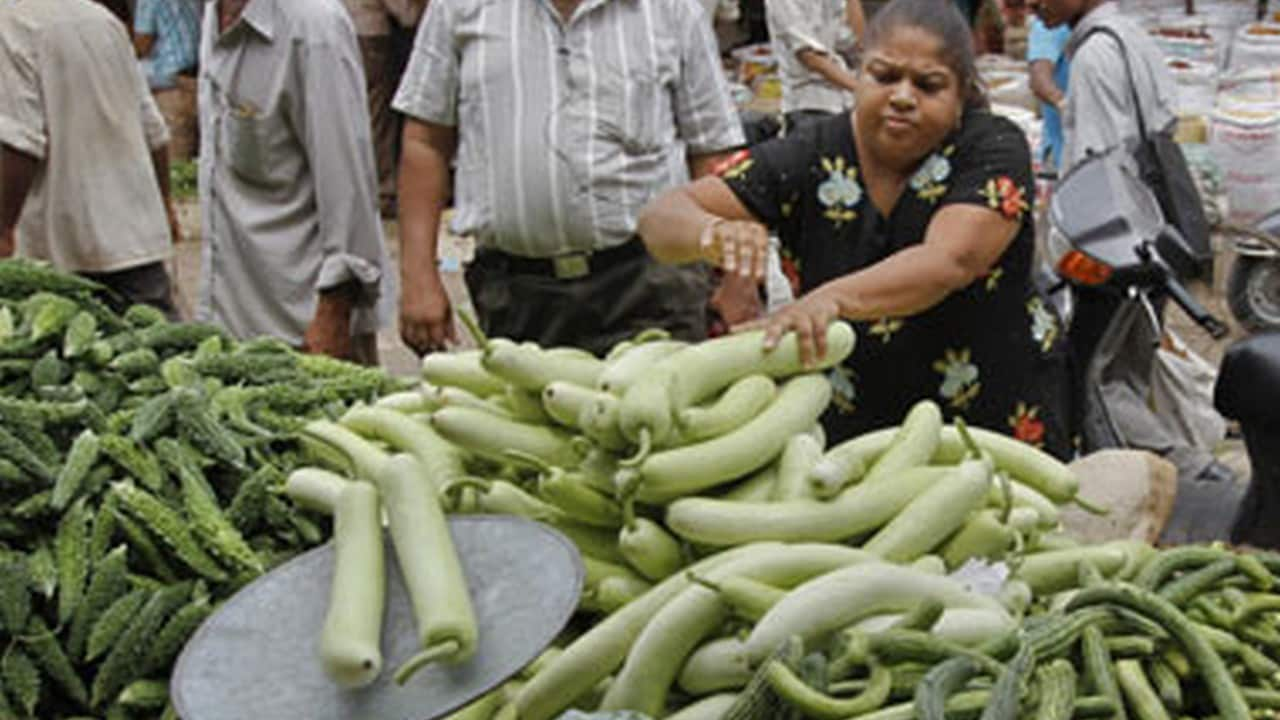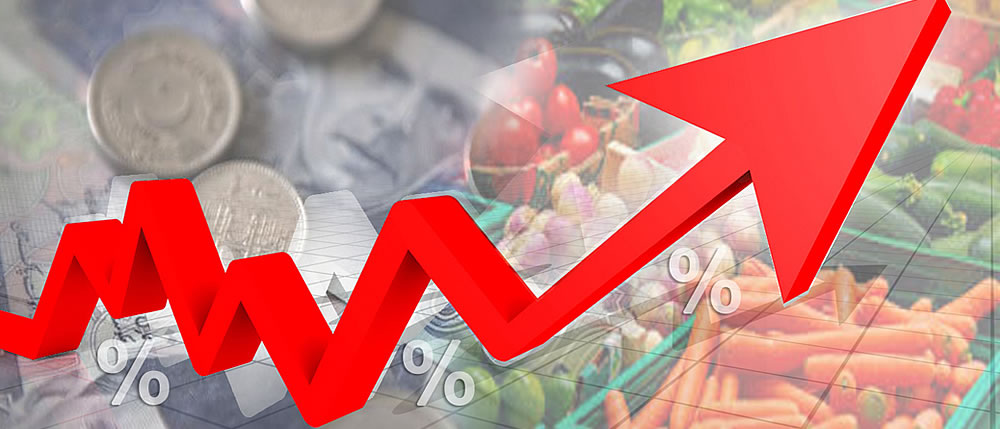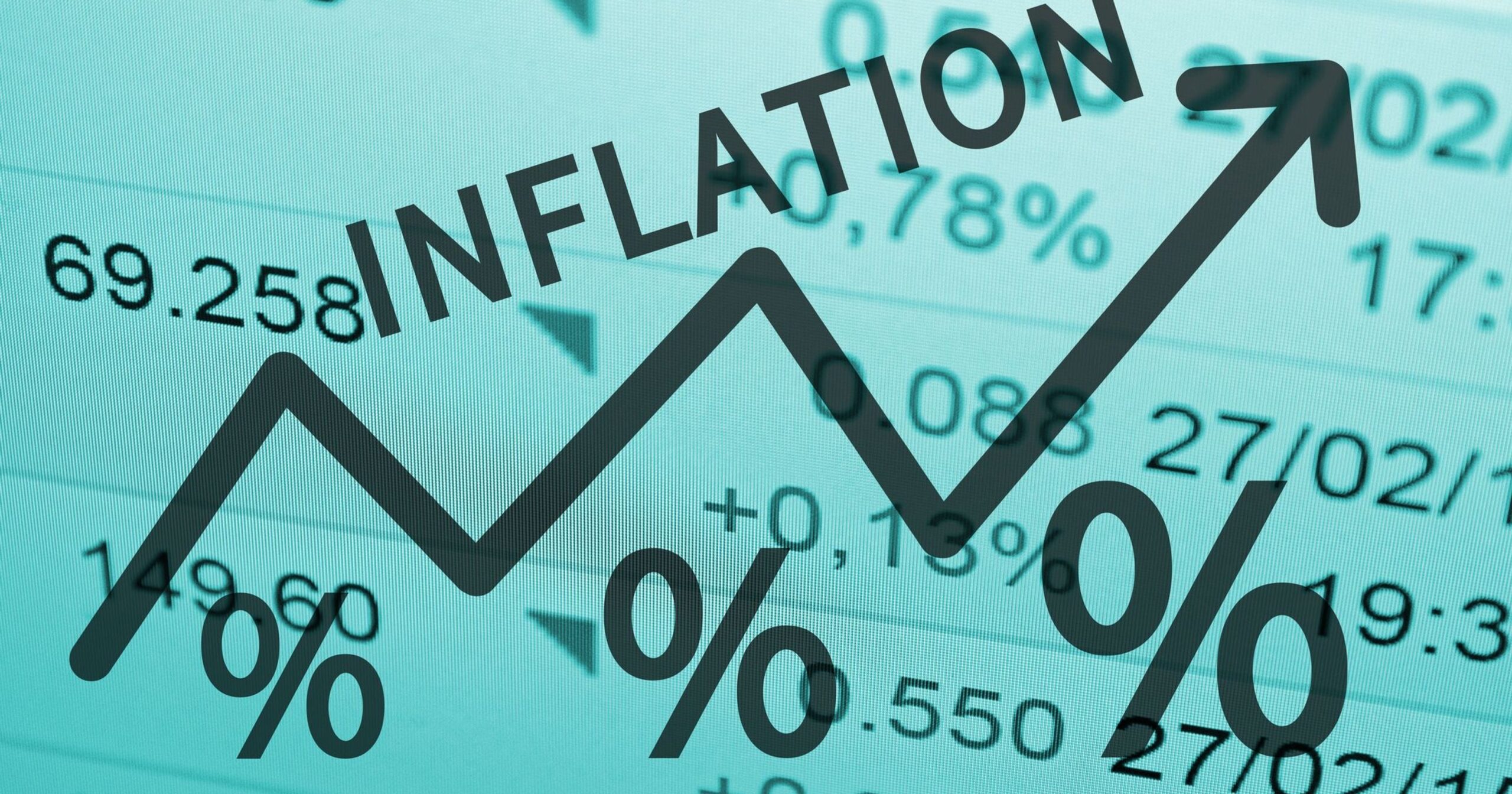Inflation Expected to Surpass RBI’s Target in July and August Due to Soaring Vegetable Prices: Nomura

Inflation Expected to Surpass RBI’s Target in July and August Due to Soaring Vegetable Prices: Nomura
According to a note from a Japanese brokerage, consumer price inflation is projected to exceed the Reserve Bank of India’s (RBI) tolerance threshold of 6 percent once again in July and August. This inflationary pressure is attributed to the extremely high prices of vegetables in the market.
In response to the escalating food prices, the Indian government has already taken action by imposing a ban on non-basmati rice exports. The brokerage firm, Nomura, expects the government to introduce additional supply-side measures to address the rising prices and control inflation in the future.

The situation highlights the challenges faced by the Indian economy in managing inflationary pressures, particularly related to food prices. The RBI and the government are closely monitoring the situation and implementing measures to mitigate the impact on consumers and the overall economy. Controlling inflation is essential for maintaining price stability and supporting sustainable economic growth.
According to economists at Nomura, they anticipate that supply-side interventions will continue, and as a result, inflation is likely to remain above the 6% level in July and August. This inflationary pressure is primarily driven by the exceptionally high prices of vegetables in the market.
Last year, inflation had persistently stayed above the 6% mark, which is the upper tolerance level set by the flexible inflation targeting framework. This situation prompted the Reserve Bank of India (RBI) to provide an explanatory note to the government, explaining the reasons for the inflation exceeding the predetermined threshold.
In response to the surge, the RBI took measures to control and stabilize prices by raising the repo rate. From May 2022, the RBI implemented a series of policy actions, increasing the repo rate cumulatively by 2.50% to curb the price rise.

The RBI’s efforts to manage inflation through monetary policy actions highlight the central bank’s commitment to maintaining price stability and supporting the overall economic well-being of the country. As it remains a concern, the RBI and the government will likely continue to implement measures to address inflationary pressures in the economy.
Earlier this year, the Reserve Bank of India (RBI) decided to pause its rate hike cycle to prioritize economic growth. Many analysts anticipate an extended pause in policy rates before the central bank considers cutting interest rates in the future.
In June, Consumer Price Inflation (CPI) increased to 4.81% from 4.31% in May. This uptick in it was largely driven by a significant rise in food prices. Specifically, rice inflation surged to 12% in June, up from 9% earlier. Daily data suggests that there could be further price increases in July as well.

The RBI’s decision to pause rate hikes and focus on growth reflects its cautious approach to balancing control and supporting economic recovery. As food prices remain a key driver of inflationary pressures, policymakers will closely monitor the situation and implement appropriate measures to manage it while also promoting economic growth. The central bank’s response to inflation and its impact on monetary policy will depend on how the inflationary pressures evolve in the coming months.
The government had previously implemented a 20% export tax on non-basmati rice in September of the previous year. With the recent ban on non-basmati rice exports, a total of 42% of rice exports are now restricted, as reported by Nomura.
According to the note, the delayed onset and uneven distribution of monsoons have had adverse effects on paddy sowing. As of mid-July, paddy sowing is 6% lower than usual due to these monsoon-related challenges.
The ban on rice exports is part of a series of supply-side interventions by the government to address the inflationary pressures driven by rising food prices. It highlights the importance of managing it as a political priority, particularly with upcoming state elections in the fourth quarter of 2023 and general elections in the second quarter of 2024.

These supply-side measures aim to curb the surge in food prices and ensure adequate domestic supply. The government’s actions reflect its commitment to managing it while considering the economic and political implications of price stability. As the situation evolves, policymakers will continue to assess and respond to the changing economic conditions to support the overall well-being of the nation.
According to Nomura, India’s decision to ban non-basmati rice exports will have significant implications on global rice prices. India is a major player in the global rice market, accounting for 40% of the world’s rice exports. With the ban in place, there will be a reduction in the supply of Indian rice in the international market, which can potentially lead to an increase in global rice prices.
Thailand, being another significant rice exporter, stands to benefit from India’s export ban. As India’s major competitor in the rice market, Thailand can potentially fill the gap left by India’s absence in the export market, thus gaining more market share.

On the other hand, the ban can have implications for rice-importing nations, particularly in the Southeast Asian region. Countries like the Philippines, Singapore, Hong Kong, and Malaysia, which heavily rely on rice imports, may face challenges due to the reduced supply from India. This can put upward pressure on rice prices in these countries and impact their food security and inflation rates.




